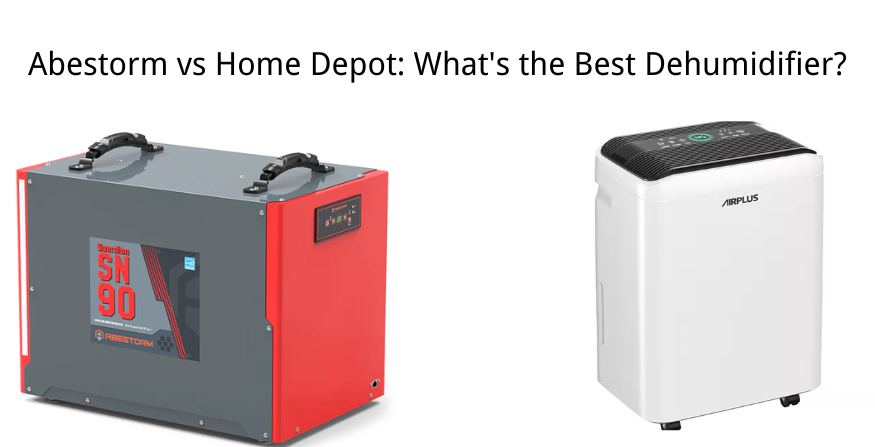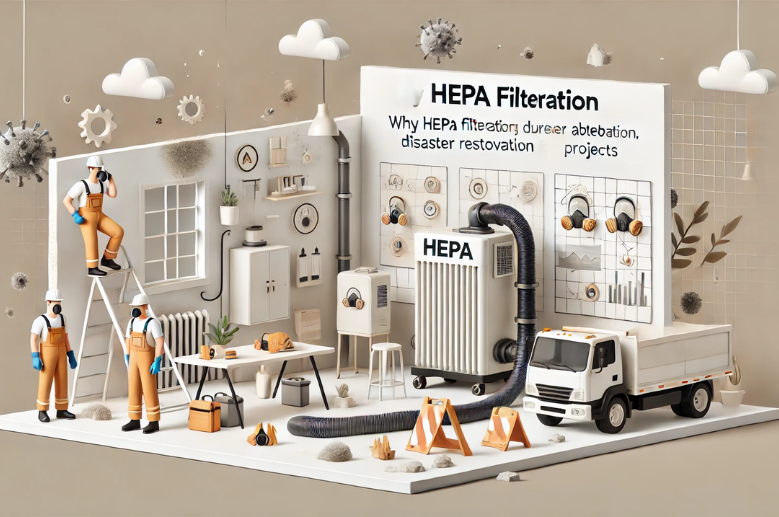When you hear HEPA filters, you probably think of vacuum cleaners or air purifiers. Little do you know that HEPA filters are widely applied in various fields and aspects beyond your house. From healthcare settings to airplanes and, more importantly, in the industrial setting, HEPA filtration is crucial in air quality enhancement and protection against airborne contaminants. So, how else do people apply HEPA filters, and why do they prove essential in so many applications?
In this article, we will explore various uses of HEPA filters, from residential to commercial and industrial. We'll discuss how they work and why they are such a crucial component in maintaining air quality in sensitive environments.
Healthcare and Medical Settings
The most important use of HEPA filters is in health care. Every hospital, clinic, and other medical institution uses them to prevent airborne particles of any sort, including bacteria, viruses, and other forms of pathogens, from being carried in the air. These include operating rooms, isolation wards, and intensive care units.
One example is the HEPA filters installed in hospitals' HVAC systems. These filters trap airborne contaminants from circulating within the facilities, reducing the risk of infections while safeguarding patients and healthcare workers against harmful particles.
In addition to HVAC systems, HEPA filters are used in medical devices such as ventilators and air filtration units that enter rooms when airborne infections are being treated. The degree of filtration by HEPA filters is very high, and they are part of infection control systems inside health facilities.
Visit Abestorm’s HEPA filtration systems if you require quality HEPA filtration for medical-grade air purification.

Airplanes and Transportation
HEPA filters are also widely used in the aviation industry. Inherent characteristics of aeroplane cabins are enclosed spaces comprising limited fresh air circulation. Under these circumstances, air filtration should be more efficient. Modern commercial aeroplanes mainly rely on HEPA filters within their ventilation systems to clean indoor cabin air by filtering out particulate matter.
HEPA filters in aircraft capture bacteria and viruses, among other micro-particles, thus ensuring safe air travel for the passengers inside. These filters filter the air within a commercial aircraft to such an extent that the quality could be compared to that within a hospital's operating room. Cabin air remains clean because HEPA filters remove particles as small as 0.3 microns - 99.97% of them.
Besides aeroplanes, HEPA filters are also used in various forms of transportation, including buses and trains, to improve passenger air quality. The HEPA filter reduces airborne diseases and pollutants, particularly in high-traffic transportation hubs.
Related reading: Abestorm vs Home Depot: That's the best dehumidifier
Industrial and Manufacturing Environments
However, the most significant factor remains pure air for chemical-based industries, which involves dust and other harmful suspended particles. HEPA filters are used in various industrial applications, from cleanrooms to pharma manufacturing and food processing plants.
Clean rooms in electronics and pharmaceutical industries employ HEPA filters to reduce the amount of contaminants in the air significantly. In such a place, even the finest contamination particles may change the quality of a product or appear with contamination. HEPA filters prevent dust and bacteria, along with all the other ill particles, from accumulating in the air; therefore, their role has become indispensable in working a cleanroom.
Other typical uses of HEPA filters include factory and manufacturing sites with toxic substances or high dusting rates. For example, HEPA filtration is found in woodworking stores, metal fabrication plants, and chemical processing units to safeguard labourers without contaminating the environment.
Industrial and commercial HEPA filtration systems by Abestorm emphasise clean air even in the most challenging areas.
Residential Use
Although HEPA filters are most commonly used in residential settings for air purifiers and vacuum cleaners, their applications extend well beyond these two pieces of equipment. Increasingly, homes utilise HEPA filters as part of the HVAC system to enhance the quality of interior air for individuals with allergies or respiratory conditions.
Most house owners have a major problem with indoor air quality, and HEPA filters are inexpensive and practical solutions. These filters trap allergens like pollen, pet dander, and dust mites, greatly reducing the allergens in the air. This results in healthier lungs and general well-being.
In addition, HEPA filters have already been used in household dehumidifiers to control moisture and suspended particulate matter. An example is the Abestorm HEPA Filtration Dehumidifier, which can help in indoor health control by eliminating level humidity while simultaneously removing contaminants.

Laboratories and Research Facilities
Another critical application of HEPA filters is in laboratories and research facilities, where a contaminant-free environment is essential. Whether it's a biological research lab, a pharmaceutical development facility, or a chemistry lab, the air must be kept free from particulates that could interfere with experiments or compromise the safety of the researchers.
For instance, HEPA filters in fume hoods and other laboratory equipment remove particles so they do not reach the surrounding environment. This helps create a clean source of air within the lab because it does not contain any contaminants and risk factors that may have remained if it were not used.
Other labs that deal with harmful substances or agents, including those that work on viruses or chemical composition, can also apply HEPA filters to keep out harmful particles and prevent them from recirculating back into the air, protecting staff members and other community members living nearby.
To ensure that your lab has effective HEPA filtration, look into Abestorm's HEPA systems designed exclusively for laboratory applications.
Schools and Public Buildings
HEPA filters are now being installed by schools and other places of public gathering due to increasing concern regarding indoor air quality. Places where groups of people tend to congregate, including classrooms, gyms, and auditoriums, require clean air to inhibit the spread of airborne diseases or allergens.
During the COVID-19 pandemic, more HEPA filtration systems in schools helped reduce the virus's spread within enclosed and closed spaces. Today, even libraries and other public facilities are looking forward to increasing the number of HEPA systems to improve general air quality and protect people's health.
HEPA filters in public buildings reduce or minimize allergens, pollutants, and pathogens in the air, creating a safer environment for everyone.
Conclusion
HEPA filters are used in a wide variety of applications, going far beyond vacuum cleaners and air purifiers in houses. They protect clean air in health care, airplanes, industrial facilities, and even laboratories.
HEPA filters have an extremely high filtration level, which means air becomes cleaner in any setting – your house, workplace, or a particular environment. This means that the air you breathe is as clean as possible. Discover more about HEPA filtration systems through the Abestorm product catalogue.









Shop For Dehumidifier